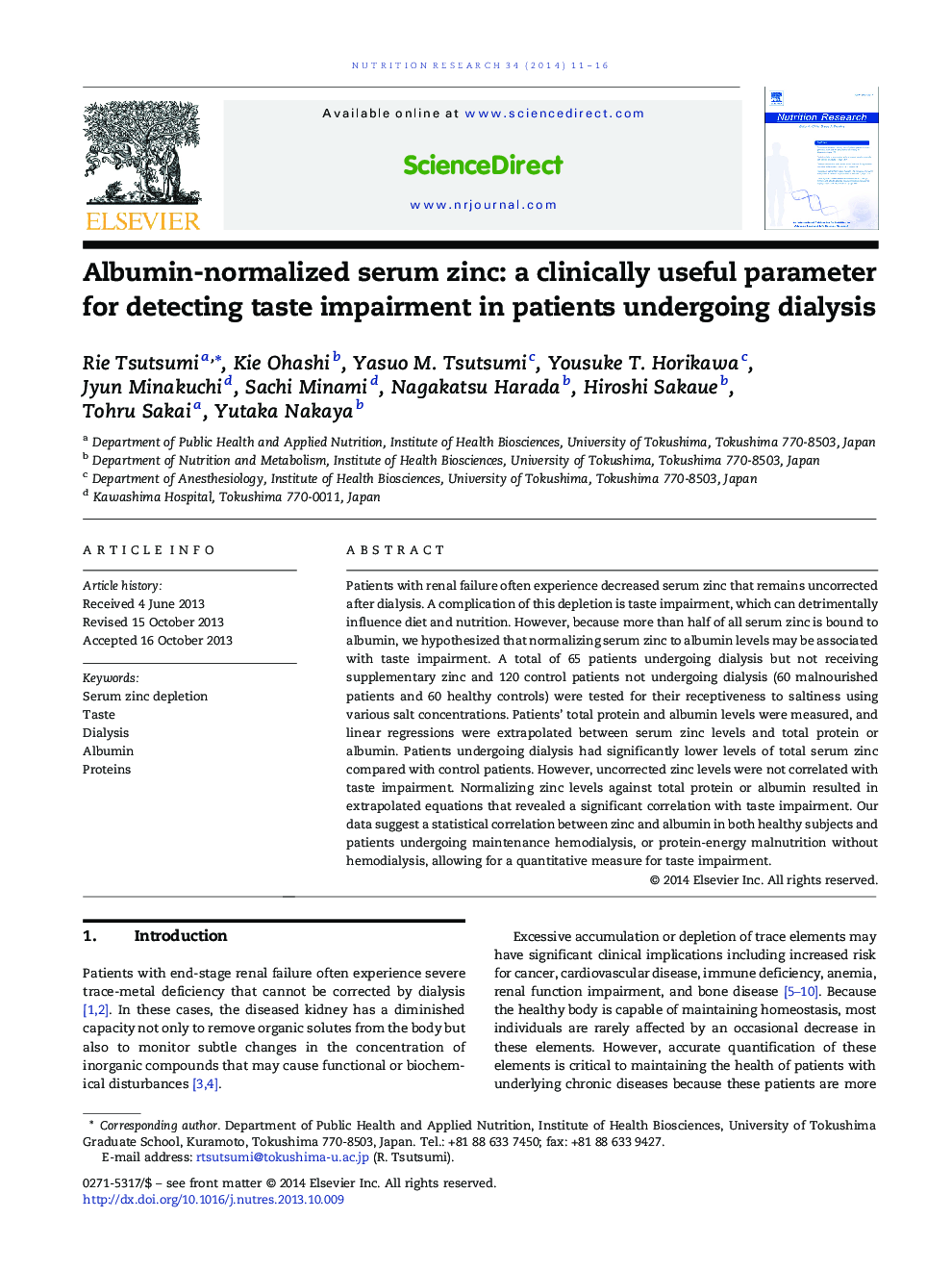| Article ID | Journal | Published Year | Pages | File Type |
|---|---|---|---|---|
| 2809188 | Nutrition Research | 2014 | 6 Pages |
Patients with renal failure often experience decreased serum zinc that remains uncorrected after dialysis. A complication of this depletion is taste impairment, which can detrimentally influence diet and nutrition. However, because more than half of all serum zinc is bound to albumin, we hypothesized that normalizing serum zinc to albumin levels may be associated with taste impairment. A total of 65 patients undergoing dialysis but not receiving supplementary zinc and 120 control patients not undergoing dialysis (60 malnourished patients and 60 healthy controls) were tested for their receptiveness to saltiness using various salt concentrations. Patients' total protein and albumin levels were measured, and linear regressions were extrapolated between serum zinc levels and total protein or albumin. Patients undergoing dialysis had significantly lower levels of total serum zinc compared with control patients. However, uncorrected zinc levels were not correlated with taste impairment. Normalizing zinc levels against total protein or albumin resulted in extrapolated equations that revealed a significant correlation with taste impairment. Our data suggest a statistical correlation between zinc and albumin in both healthy subjects and patients undergoing maintenance hemodialysis, or protein-energy malnutrition without hemodialysis, allowing for a quantitative measure for taste impairment.
